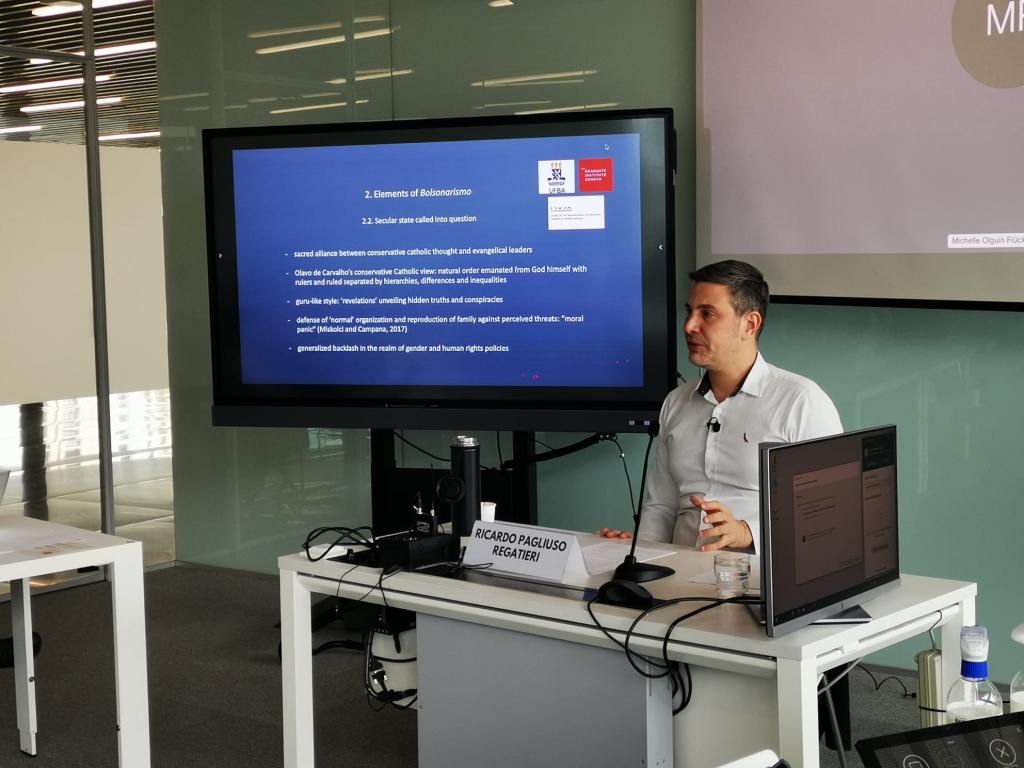On February 24th, the Albert Hirschman Centre on Democracy closed a two-day workshop on authoritarianism with a presentation by former AHCD Visiting Research Fellow Ricardo Regatieri on the topic.
The spectre of new authoritarianisms loomed large over the discussions on the 24th. Participants indeed kicked off the second day of discussion and workshops with the news of the invasion of Ukraine. Although, as participants shared, this spectre was far from contained: from Brazil to Hungary, from Poland to the Philippines, from India to the United States, a new wave of authoritarian leaders, parties, and movements has been undermining democracy from within and threatening its existence. Until quite recently, authoritarianism was a phenomenon identified with the global South. Today, however, it has also very much a feature of politics in the West.
The two previous days of workshops brought together interested students, post-docs, and other researchers who explored the phenomenon of authoritarianism from various perspectives. The presentations, which covered authoritarian leaders, parties and movements from around the world produced a rich discussion on the threat they pose.
Following these conversations Ricardo Regatieri took the stage to present his own research on the global phenomenon of contemporary far-right wing and its Brazilian branch, aptly titled “The Politics of the Irrational”. The presentation had two major parts, starting with the age of the internet and its effects on the political arena. From conspiracy theories to pseudoscience and fake news, Prof. Regatieri—who spent the past six months researching the topic the Albert Hirschman Centre on Democracy—covered the implication of these new phenomena for authoritarian regimes.
Although the global far right is a product of the 21st century, it does not dispense with propaganda techniques of historical fascism and repertoires of populist rhetoric. But, according to our presenter, unlike historical fascism and historical populism, it can be understood as a destructive form of management of the contemporary crisis of neoliberal capitalism.
The second part of the presentation narrowed the focus to explain how these “politics of the irrational” fit into the Bolsonaro regime in Brazil. Prof. Regatieri argues the efforts of the regime have countered and reversed the political cycle that started in 1985 with a process of re-democratization. It has boiled down to a story of us vs. them, and of labelling the opposition not as a part of a healthy democracy but as true enemies of the nation.
The Brazilian case can give us an insight into authoritarianism as it exists in the 21st century. It is rooted and based on the specific context of the country and yet is also entrenched in a larger global context. If the workshop and the ensuing presentation taught us anything, it has been that there is no shortage of authoritarian leaders or tactics around the world. Yet it also showed that the very same spectre can morph and transform itself to various national contexts, which makes it all the more alarming.


